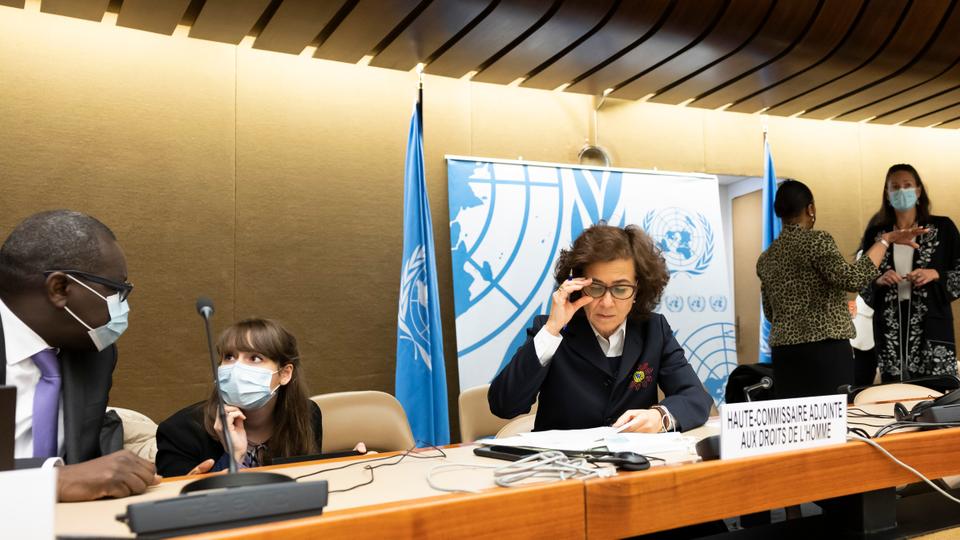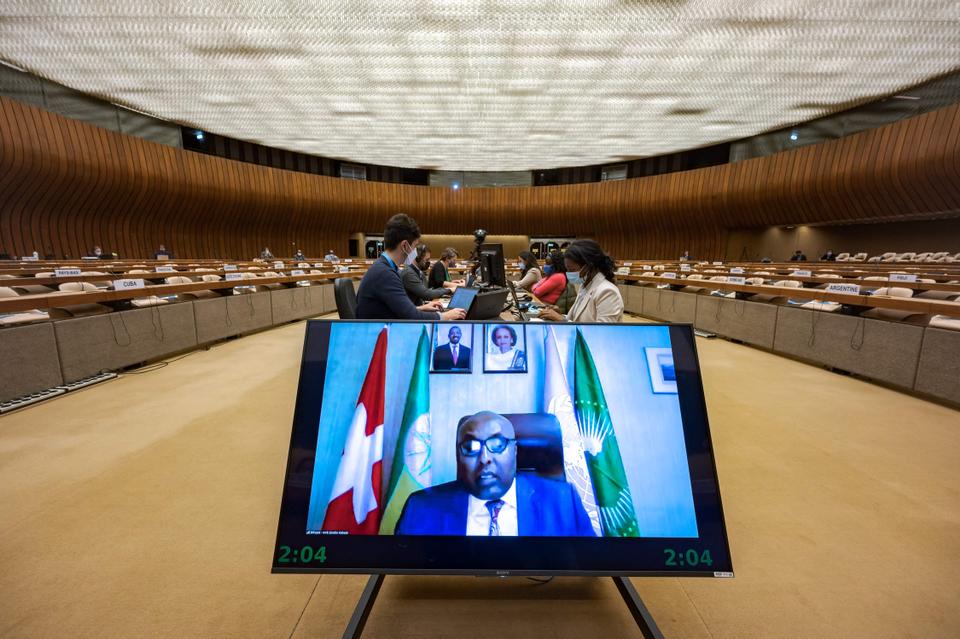Ethiopia accuses United Nations Human Rights Council of targeting Addis Ababa for defending its government after the body said the country risks descent into ‘generalised violence’.

Ethiopia has slammed a special session of the United Nations Human Rights council focused on the country, saying multilateralism had been "hijacked by a neocolonialist mentality".
Ambassador Zenebe Kebede told the Geneva-based body on Friday that "the council is being used as an instrument of political pressure.”
“Ethiopia is being targeted and singled out at the Human Rights Council for defending a democratically elected government, the peace and the future of its people," the ambassador said.
The European Union and other Western countries presented a draft resolution to the UN on Friday that would create a three-person team with a one-year mandate to monitor and report on alleged rights abuses in Ethiopia.
Kebede rejected the resolution, calling it a “deliberate destabilisation effort", and said the government “will not cooperate with any mechanism imposed on it.”
Several nations came to Ethiopia's defence, with Cameroon's ambassador Salomon Eheth insisting on behalf of African countries that the requested investigation would be "counterproductive and susceptible to exacerbating tensions".
READ MORE: Ethiopia accuses Western nations of spreading 'destructive narrative'

Calls for an international investigation
Countries urged the top UN rights body on Friday to send international investigators to conflict-hit Ethiopia amid warnings of looming generalised violence.
Addressing the council in an emergency meeting, deputy rights chief Nada al Nashif cautioned that Ethiopia's 13-month conflict in the northern Tigray region could "escalate into generalised violence."
This, she said, would have "major implications, not only for millions of people in Ethiopia, but also across the region" .
A joint investigation by the UN rights office warned last month that possible war crimes and crimes against humanity had been committed by all sides during the conflict.
Al Nashif said Friday the rights office had since continued "to receive credible reports of severe human rights violations and abuses by all parties".
She voiced particular concern about surging rights abuses after a nationwide state of emergency was declared on November 2, with mass arrests mainly of ethnic Tigrayans.
Many diplomats voiced alarm at reports of atrocities in the conflict, which the UN says has left thousands dead, displaced more than two million people and pushed hundreds of thousands to the brink of famine.
Source: TRTWorld and agencies
Social media is bold.
Social media is young.
Social media raises questions.
Social media is not satisfied with an answer.
Social media looks at the big picture.
Social media is interested in every detail.
social media is curious.
Social media is free.
Social media is irreplaceable.
But never irrelevant.
Social media is you.
(With input from news agency language)
If you like this story, share it with a friend!
We are a non-profit organization. Help us financially to keep our journalism free from government and corporate pressure












0 Comments